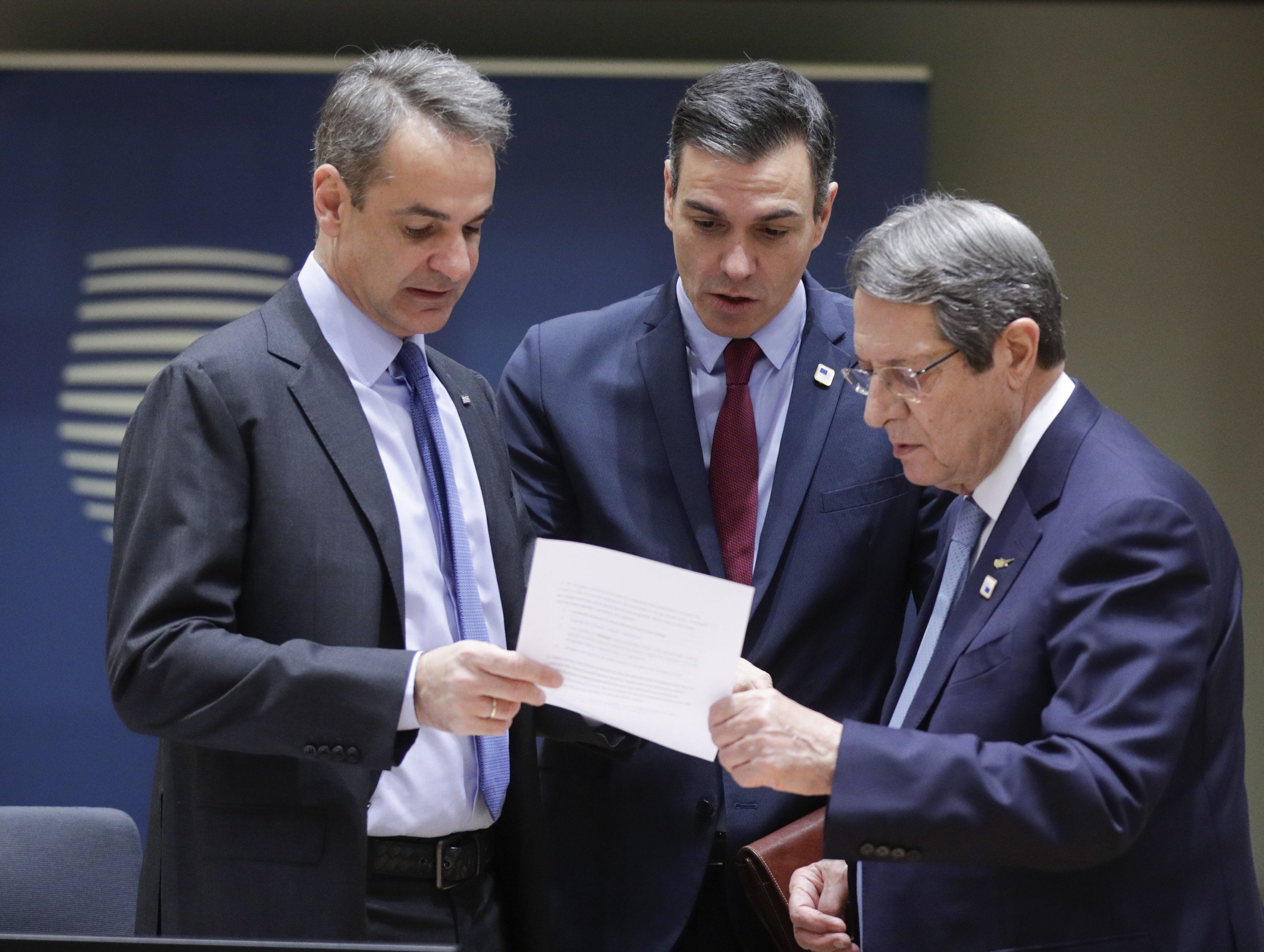The European Council had to interrupt its discussion of energy prices in Brussels this Friday due to the overheating temperament of Spanish prime minister Pedro Sanchez, after his proposal for a European-level solution to moderate energy prices was blocked by the opposition of Germany, the Netherlands and the Scandinavian countries. The Spanish PM's reaction was to lose his cool, coinciding with the fact that he is under great pressure due to street protests against rising prices and accusations that the Spanish government is doing nothing. "I'm going to get some air for a while to see if they can find a technical solution," Sanchez said as he left the meeting, forcing it to pause, radio station SER reported.
After a time, the Spanish president returned to the meeting, with the plan of getting at least a temporary "energy island" for Spain and Portugal that would allow the EU to intervene in gas and electricity prices in these two countries. Part of the problem, though, is that the Spanish government has not yet taken any significant measures of its own regarding prices of energy, while other countries such as Germany, Austria and France have done so. Germany yesterday agreed to a one-time payment of 300 euros to citizens and will temporarily lower the price of fuel as part of a series of measures to offset the sharp rise in energy prices as a result of the Ukrainian war. The top leaders of the three parties in the governing coalition in Berlin, who are from the left side of the spectrum like the Spanish government, announced a reduction in petrol and diesel prices by 30 and 15 cents respectively over the next three months. This measure will be formulated through a temporary reduction in taxes on fuel. In addition, the German government agreed that for three months, monthly tickets for commuter public transport will be offered at a price of 9 euros. There is no such measure in Spain, because the government has wanted to avoid it by trying to find a solution through the EU.
Consolation prize
Did Sánchez's theatrics have an effect? In the end, Pedro Sánchez was awarded a consolation prize at the European Council summit. The Spanish government did not achieve its goal of decoupling gas from the electricity bill - to the point that it was not even discussed, nor the idea of fully intervening in the market to change the system of setting marginal prices - but it was generally accepted that Spain and Portugal will be given special treatment and will be considered an "energy island". This opens the door for the two states to set the price of gas and electricity on the Iberian market autonomously, but the European Commission will have to authorize the specific measures, the nature of which have yet to be determined.
"The discussion was intense", confirmed the president of the European Commission, Ursula von der Leyen. "The Iberian Peninsula has a very special situation, its energy mix has a lot of renewables, that is good, but with few interconnections. Therefore, we have agreed that special treatment will be possible for the Iberian Peninsula so that it can compete with this specific situation and manage electricity", said the EU leader at the end of the meeting.
Yesterday, Sánchez told the Financial Times how much was at stake: "The summit cannot end without an agreement. We need measures and we need them now." The Spanish leader had even threatened to veto the meeting conclusions document if his call for a separate solution for Spain and Portugal was ignored.
In the main photo, Pedro Sánchez with the leaders of Greece and Cyprus | EFE

